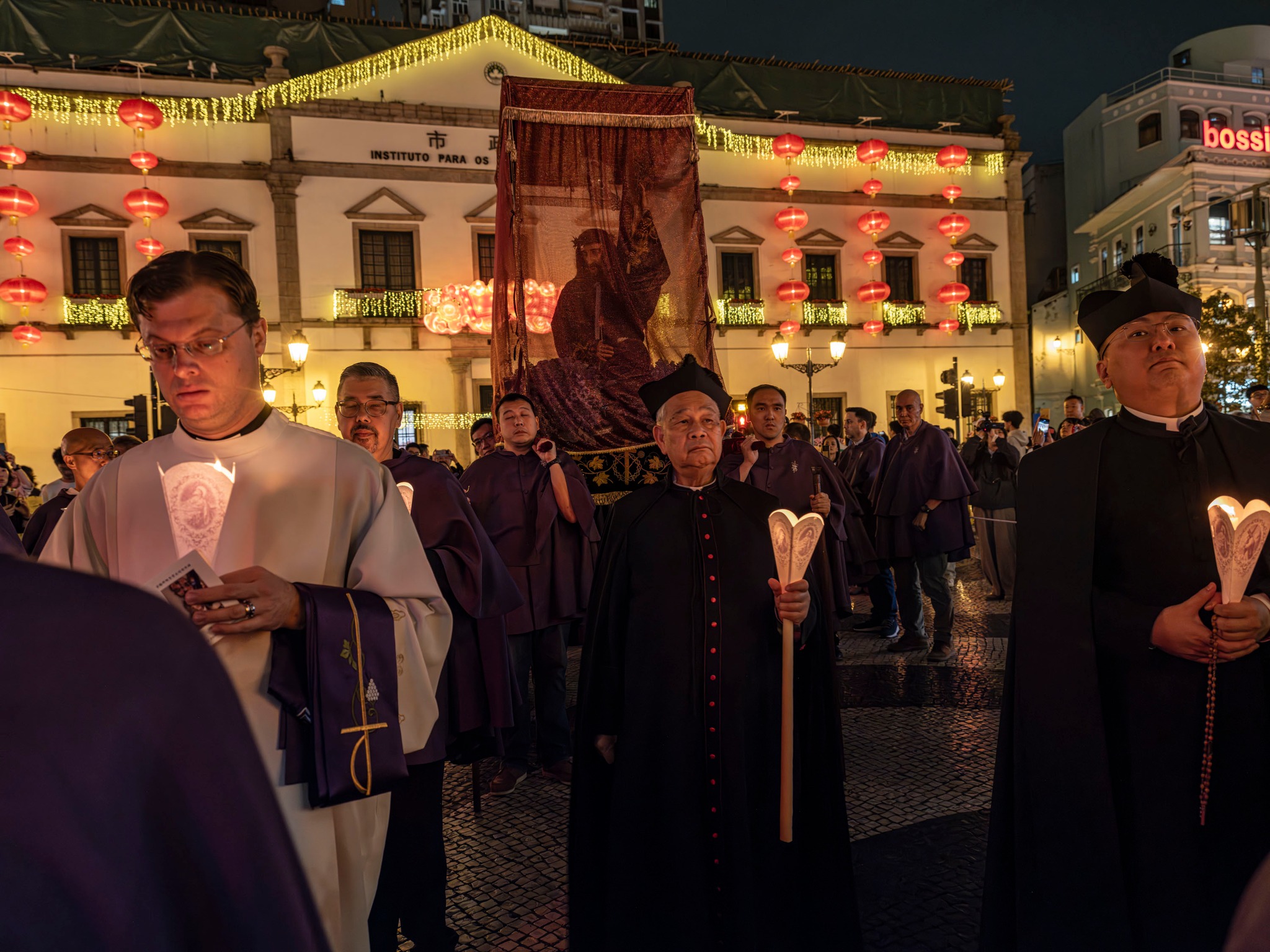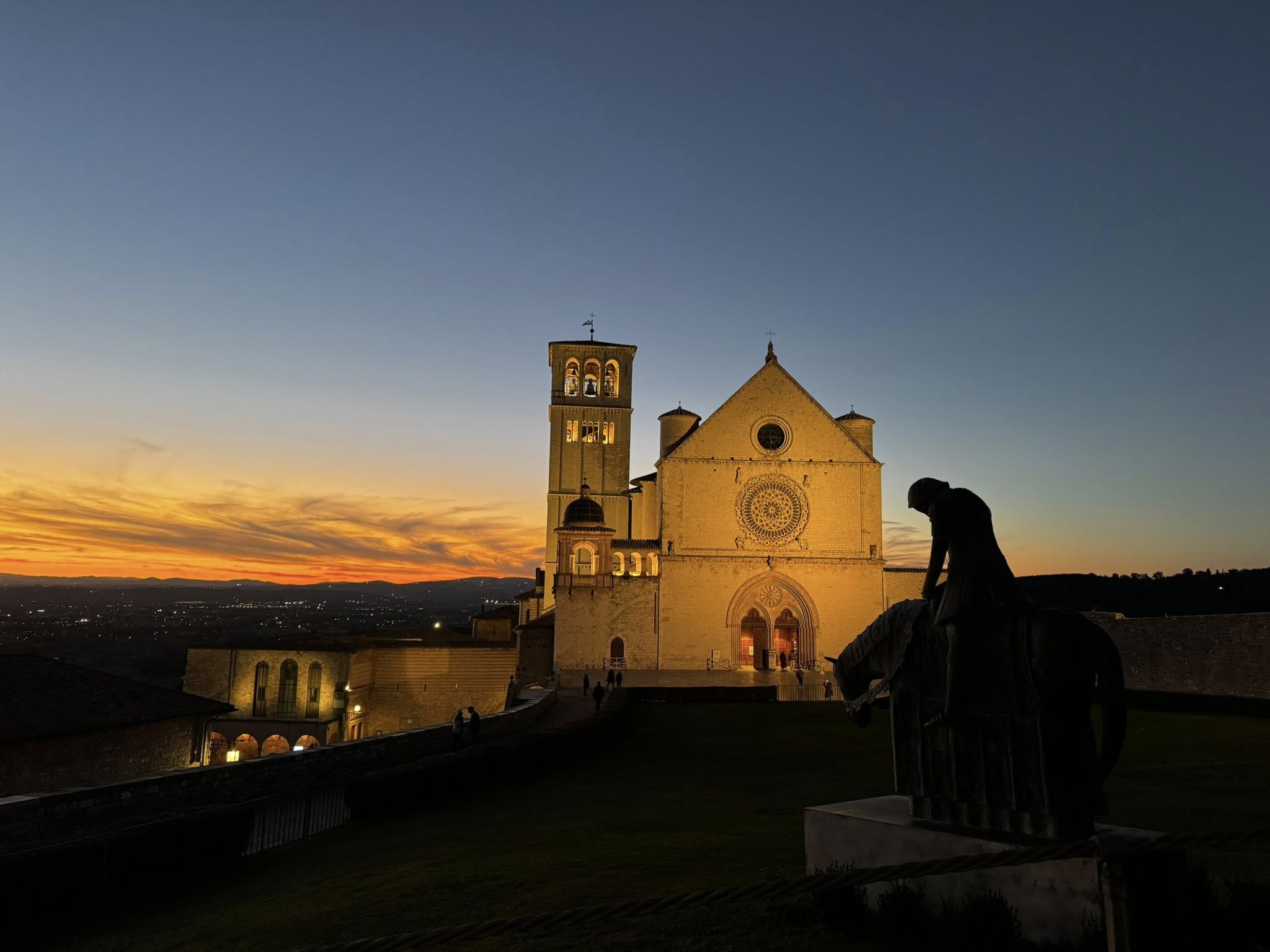FAUSTO GOMEZ OP
Lent is a time for penance (no, to sin; yes, to love). Penance, which is mainly internal penance (repentance, attrition and contrition) is manifested and improved by external penance, mainly by practicing prayer, fasting and almsgiving. These three are the classical practices of penance for Christians.
A second century writer preaches in a homily: “Almsgiving is one form of repentance and a good one too; fasting is better than prayer; but almsgiving is better than both, because charity covers a multitude of sins. Prayer is a sure shield against death, and blessed is the man found perfect in these three ways. One last word, almsgiving lightens the load of sin.” Often, prayer is presented as directed to fasting and almsgiving.
From the beginning of Christianity, the Fathers of the Church wrote abundantly on PRAYER, including the author of the Didache, Apostolic Tradition of St. Hippolytus, the treatise On Prayer of Tertullian, and the Homilies of Origen.
For St. Peter Chrysologus (406-450), “Prayer, mercy and fasting constitute one thing only, and they fertilize reciprocally. Fasting is the soul of prayer, mercy is the lifeblood of fasting. Let no one try to separate them; they cannot be separated… So, if you pray, fast; if you fast, show mercy; if you want your petitions to be heard, hear the petitions of others. He adds: “He who does not fast for the poor, fools God.” On the other hand, fasting with almsgiving is pleasing to God. The Shepherd of Hermas says: “What you take away from your body in fasting give to the poor.”
Prayer, St. Augustine writes, is a conversation with God: “Your prayer is like a conversation. When you read, God is talking to you; when you pray, it is you who are talking to him.” In a good conversation, prayer conquers God. Writes Tertullian: Prayer is the one thing that conquers God… Prayer cleanses from sin…, feeds the poor.
Prayer is an essential act of devotion for all believers, rich and poor: “All can achieve an equal standard in the love of our fellows.” Writes St. Leo the Great (d. 461): “No act of devotion on the part of the faithful gives God more pleasure than that which is lavished on his poor. Where he finds charity with its loving concern, there he recognizes the reflection of his own fatherly care.”
The Fathers of the Church recommend prayer accompanied by good works. One example is St Cyprian. In his lovely and deep commentary On the Our Father, the African bishop speaks of fruitful and fruitless prayer; the latter are prayers without works, without good deeds: “Prayer with no good works is not effective. For he who on the day of the last judgment will reward good works and almsgiving, today also listens favorably to prayers which come from good deeds. Prayers not accompanied by good deeds are like fruitless trees (cf. Mt 7:19). God heard the prayers with alms (cf. Tb 12:8-9) and the prayers of Cornelius because they prayed constantly and practiced much almsgiving simultaneously (cf. Ac 10:4).”
The Church Fathers write and preach on prayer and, in particular, on prayer for the poor and downtrodden. Our prayers for the poor are truly powerful. Why so? Because, St Cyprian answers, “when one has pity on the poor, one lends to God; and he who gives to the needy, gives to God himself; in a sense he offers to God spiritual sacrifices of pleasing odor.”
FASTING, to be a good act, must be accompanied by almsgiving or mercy. Fasting without almsgiving is useless on the way to heaven; it is insufficient as John Chrysostom, Ambrose and Augustine tell us. Moreover, it is a source of greed, according to the Fathers.
All the Fathers of the Church recommend strongly and persistently ALMSGIVING,sharing of goods. St Cyprian, the first Father to give us a theological treatise on almsgiving entitled On Works and Almsgiving, speaks of almsgiving as an obligation of all Christians for all need to practice charity as love of neighbor. Almsgiving is also very powerful before God.Why so?Because, St. Cyprian answers, almsgiving is an act of justice, an act of charity, and a means of purification for our sins and of obtaining forgiveness for them. He advises wealthy virgins: “Let the needy feel that you are rich. Lend your state to God, give food to Christ.”
St. Gregory of Nazianzen advises: “Be merciful. Share your bread with the hungry, be hospitable with those who have no roof, and do it with joy and promptness.” For his part, St. Augustine also underlines the practice of almsgiving. The Bishop of Hippo writes: “Just as, at the threat of a fire, we would run for water to extinguish it… so too, if the flame of sin rises from our chaff and we are troubled, if the chance to perform a work of mercy is offered us, let us rejoice in it, as if it were a fountain offered us to extinguish the blaze.”
St. Isidore of Seville (c. 560-636) speaks of two kinds of almsgiving: corporal or to give to the needy all we can; and spiritual, or forgiving the one who offended us. The Lord had said: “Forgive, and it will be forgiven; give, and it will be given to you” (Lk 6:37-38). St. Isidore comments: the first, almsgiving – corporal work of mercy – should be practiced with the indigent, and the second, forgiving – spiritual work of mercy – with sinners or bad people. Thus, he ends, “you will always be able to give something: if not money, at least forgiveness.” St. Clement of Rome (d. end of Century 1) writes: Almsgiving is as good as repentance from sin; fasting is better than prayer; almsgiving is better than either.
Charity is the best practice, especially during the time of Lent. St. Leo the Great: “Any time is the right time for works of charity, but these days of Lent provide a special encouragement. … Seek above all to win this grace, for charity contains all other virtues and covers a multitude of sins.”


 Follow
Follow

